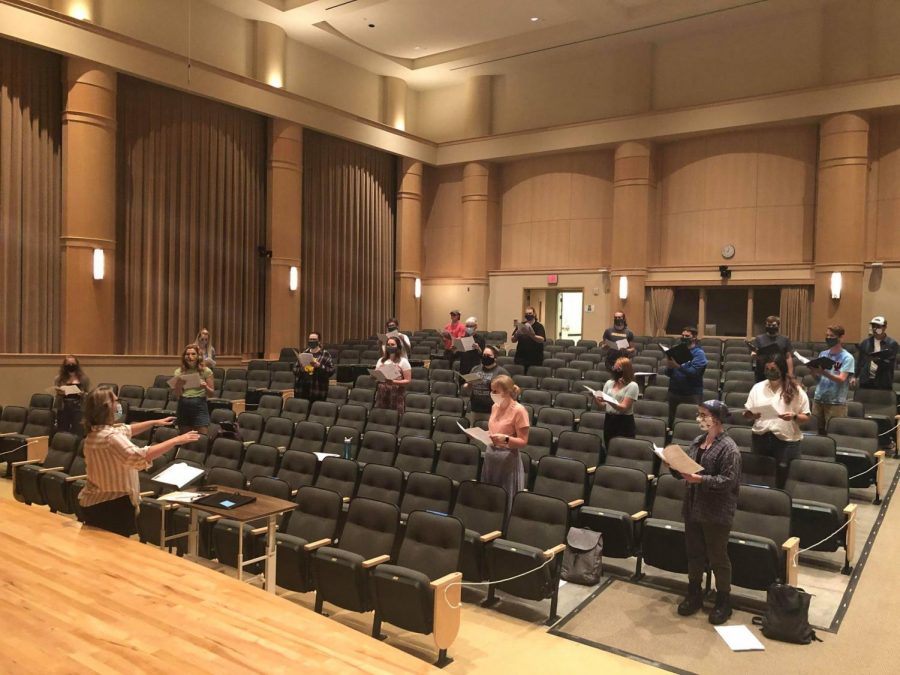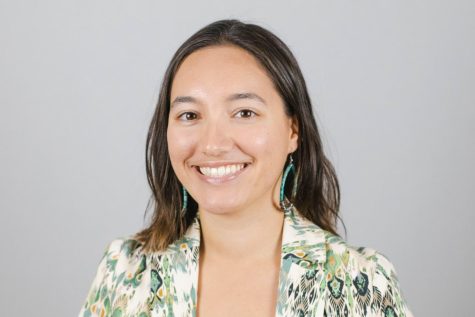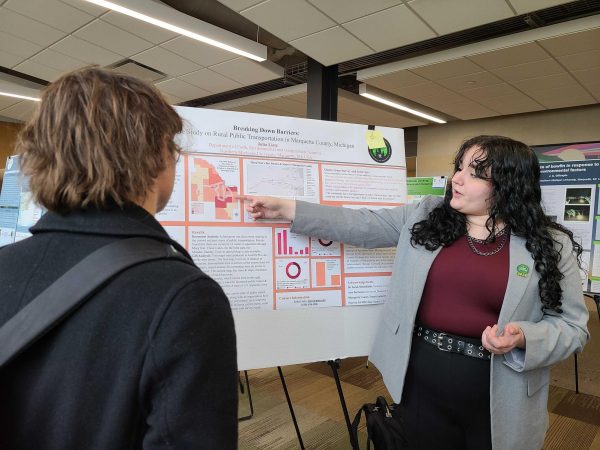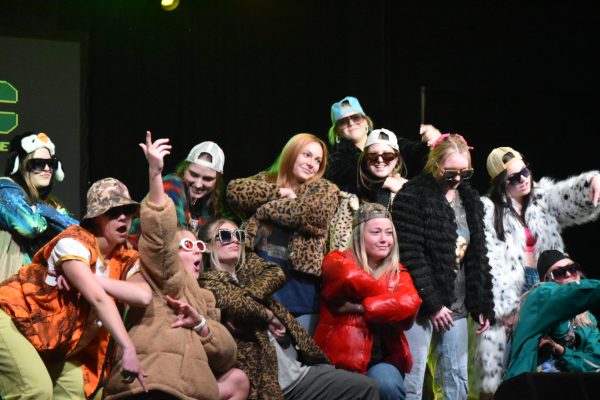Choirs prepare for first live concert since COVID
SOCIAL DISTANCED SINGING — Choir students rehearse six feet apart during the height of the COVID-19 pandemic. Now the choirs are able to perform on stage together, but still wear masks as much as possible.
October 5, 2021
After a year and a half of singing into a room of empty chairs, the NMU University Choir and NMU Arts Chorale will finally get to perform to a live audience. For almost two years, the choirs have been wearing masks, social distancing and posting their spectator-less performances online.
Now that NMU’s COVID-19 restrictions have loosened, the choirs are looking forward to hearing the applause of a live audience once again. Their first performance of the semester will take place on Tuesday, Oct. 5 at 7:30 p.m. in Reynolds Recital Hall. Admission is free for everyone and will also be live-streamed on the NMU music department’s YouTube page.
“It’s an important thing for people, especially after COVID, to be social and to sing together in a group,” Erin Colwitz, NMU director of choirs, said. “It’s a real privilege.”
The singers now have the option to take their masks off while singing, but it is not a requirement. Some students have found that singers’ masks, which provide more space in front of the mouth, are a solution that works for them. Some masks muffle the sound of a singer, Colwitz said, which can make singing as a group more difficult.
The concert will feature the University Choir and the Arts Chorale and will include a wide variety of music styles.
“At this point in the fall I just chose music that I felt like my students could do in a pretty short amount of time, because we only have like six weeks to prepare for this first concert,” Colwitz said. “I’d say this is sort of an after COVID favorites concert. Like what did I want to do last year that I couldn’t really do.”
Colwitz also had her two student conductors, Curt Rogan and Caitlin Palomaki, help choose a few of the songs as well. Rogan and Palomaki will be conducting pieces during the performance.
One of the songs Rogan will be conducting with the University Choir is called “Tchaka” which is sung in Haitian Creole. The piece will include four percussionists playing conga drums and shakers.
“Tchaka is a type of Haitian stew with all kinds of different vegetables and meats and things,” Colwitz said. “[The song] makes the case for the metaphor that this is what life is. We’re all different ethnicities, we all come from different backgrounds, but we all come together and enjoy music and food and have a great time together no matter what your background is.”
The Arts Chorale will also be performing a series of difficult songs in another language. “Trois Chansons Bretonnes” is a modern French piece that contains three movements.
“We had to learn a lot of French in a very short time, and some very difficult melodies and difficult notes,” Colwitz said. “I was really impressed with how quickly they picked that up.”
The choirs will also be singing a few slower and more introspective songs including “Meet Me Here” from an oratorio called “Considering Matthew Shepard” and “Sing Gently” by Eric Whitacre about coming back home to music again.
Colwitz tries to introduce her choirs to many different types of music and includes composers from a wide variety of backgrounds.
“The times that we’re living in now require a different kind of programming,” Colwitz said. “I work very hard at programming music by female composers, people of color … we talk a lot about inclusivity in music now. So these pieces, they’re all over the board but yet they kind of have the same message. Basically coming together, and especially after COVID we all just want to come together.”
Colwitz has incorporated this inclusive ideology into her choirs’ outfits as well. Female identifying singers no longer have to wear dresses and male-identifying fingers are not restricted to tuxedos. Colwitz tells her singers to arrive in whatever ‘dressy black’ performance wear they feel most comfortable in.
Colwitz just wants her singers to feel comfortable and proud to be back on stage.
“I’m just happy to be back to somewhat normal,” Colwitz said. “The students need that regularity and that normalcy that they’ve been missing for a year and a half. They want to experience college and they’ve been robbed basically for a year and a half. So we’re just happy to be back.”

































